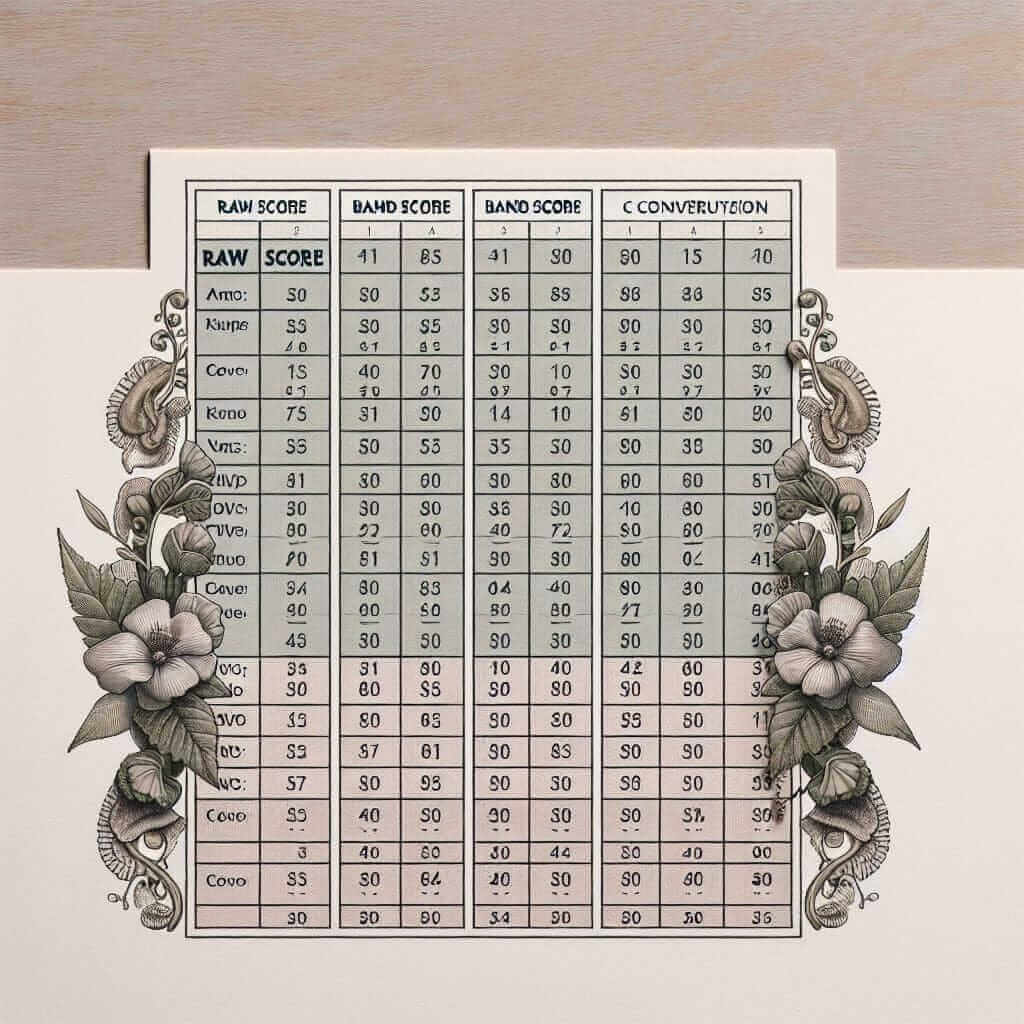Understanding the IELTS Reading Score
The IELTS Reading test, a crucial part of the International English Language Testing System, evaluates your ability to comprehend written English. Whether you’re aiming for academic pursuits or professional opportunities, achieving a high reading score is often paramount. However, understanding how this score is calculated can feel like navigating a labyrinth. This comprehensive guide will illuminate the scoring system, demystify the process, and equip you with the knowledge to interpret your results effectively.
Decoding the IELTS Reading Score Calculation
Contrary to common misconceptions, your IELTS Reading score is not simply a reflection of correct answers. Instead, it’s determined by a conversion table that translates your raw score (the number of correct answers) into a band score ranging from 0 to 9. This table varies slightly depending on the test version (Academic or General Training) and the specific test date. However, the underlying principle remains consistent – a higher raw score translates to a higher band score.
Let’s delve into the typical score conversion range:
| Band Score | Raw Score (Approximate Range) |
|---|---|
| 9 | 39-40 |
| 8 | 37-38 |
| 7 | 33-36 |
| 6 | 27-32 |
| 5 | 23-26 |
| 4 | 18-22 |
Example: Imagine you answered 35 out of 40 questions correctly on the Academic IELTS Reading test. Referring to the table above, your estimated band score would fall between 7 and 8.

Factors Influencing Your Score
While the raw score forms the foundation, your overall performance across various question types influences the final band score. The IELTS Reading test encompasses diverse question formats, including:
- Multiple Choice
- Matching Headings
- Sentence Completion
- Summary Completion
- True/False/Not Given
- Yes/No/Not Given
Mastering a variety of question types demonstrates your comprehensive reading comprehension skills and can positively impact your score.
Tips to Enhance Your IELTS Reading Score
As an IELTS instructor with over two decades of experience, I’ve witnessed countless students achieve impressive scores by implementing effective strategies:
1. Time Management is Key: Allocate your time wisely across all passages and questions.
2. Develop Skimming and Scanning Skills: Quickly identify key information and answer specific questions efficiently.
3. Enhance Vocabulary: A strong vocabulary is crucial for understanding complex texts. Regularly read English materials and note down unfamiliar words.
4. Practice Makes Perfect: Familiarize yourself with different question types by practicing with authentic IELTS Reading materials.
5. Analyze Your Mistakes: Review your practice tests to understand your weaknesses and focus on improving specific areas.
Conclusion
Calculating your IELTS Reading score doesn’t have to be a mystery. By understanding the scoring system, focusing on key skills, and practicing diligently, you can confidently approach the test and aim for your desired band score. Remember, consistent effort and strategic preparation are the cornerstones of success in the IELTS Reading test.